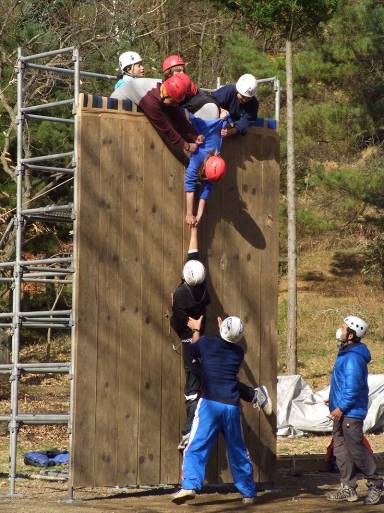Wall and boundaries and barriers
I just got back from a retreat called “The Wall”. Our organizer, my friend Jon who runs the The Cedar Tree Institute in Marquette, MI called the group of us meeting from all over the country us “Canterbury Tales”, although he gathers people much like the Pied Piper.
We were Hospice physicians, a couple Pastors, an Eye Doctor, social workers, retired physicists, coffee farmers, non profit Directors, a Jesuit Ethicist, a retired Criminal Justice professor/professional clown and a librarian. We arrived at the Holy Cross Retreat Center outside of Mesilla, New Mexico by planes, by car and across multiple states. We were 9 months old to 84 years old.
The retreat promised to get us up close and personal with the Border Wall and the issues around migration, as well as the helpers. But also we were told we would explore, with the help of the professionals in the group our own internal walls and barriers. With the help of some good facilitators we would learn for ourselves how those impact how we move in the world.
With the help of the two hospice physicians, we talked at length about people’s experiences with death and dying, and that maybe death was “the final wall”. And then we talked about living with a chronic illness like Alzheimer’s or Parkinson’s.
The question became - how do some move past some ‘wall’ of a diagnosis - to live a good life even with a chronic or terminal illness? People shared stories, personal and professional, of times when they sat with someone who was close to death and just waiting. One of the physicians shared of telling a gentleman that he believed his wife had “days only” and the husband who had not had anyone be honest with him to this point said “Oh, Doctor, that can’t be true. I’m not ready”. Mike, the Doctor, said “Sometimes we get it wrong - and this was the case. She lived for 10 more days, and when he arrived at the gentleman’s home the morning his wife died, the older gentleman thanked him and said “I wasn’t ready to hear that, and I wasn’t ready to let her go. But you helped me get ready”. The honesty, the compassion wrapped around the truth helped him move past his own wall of fear of what life would be like without his wife; and that he wouldn’t be alone.
One more wall I’ve watched happen in families when someone receives a serious health diagnosis is that some family members aren’t capable of acknowledging the truth, and accept the loss that’s coming - and so they have to work hard emotionally to build that wall between them and their loved one every day to protect themselves.
I’m not blaming - I think it’s the job of those who are doing okay - including professionals to find ways to help people move past their fears and their walls - to rejoin their loved ones who love them so dearly and need their support. Like Dr. Mike did.
I had a good friend send me a note after a conference my agency had put on - saying it had caused her to reflect deeply on her Mother, who had died after a long struggle with Alzheimer’s. She told me that had grieved the relationship she had with her Mother long ago - it was “the courageous woman with Alzheimer’s” that she grieved so deeply.
In my first Pedaling for Parkinson’s class, a former colleague joined the class. It was a pretty small town and people kept saying to me “I wish she would join. She really needs it” completely outting her as a Person with Parkinson’s, out of care and concern. When she signed up for the class I was thrilled, and as a former biker - who had stopped biking because she didn’t trust herself on the bike anymore - she was elated. Pretty soon she went down and bought a new pair of shoes, and was thrilled that “the guys at Lakeshore Bike (in Marquette, MI) were so helpful and were excited to help me keep biking”. She came to class one day, after going for a check up at the hospital/clinic to tell me that her Doctor was SHOCKED and the lack of progress of her Parkinson’s. She was excited to be able to tell him she’d been spinning at her Pedaling for Parkinson’s class. And all those people who were so worried about her - she became a role model for aging and retirees and those diagnosed with a chronic illness about not letting Parkinson’s wall her off from the rest of her life.
What moves you past your walls in these moments? Humor? Love? Who has helped you? What great new thing have you found that you didn’t have before you were diagnosed with Parkinson’s? What are you grateful for TODAY that you never would have imagined? Whatever those are - SHARE THOSE WITH OTHERS - because they need your help getting over, past, under around - what can seem insurmountable walls,
Ruth Almen


